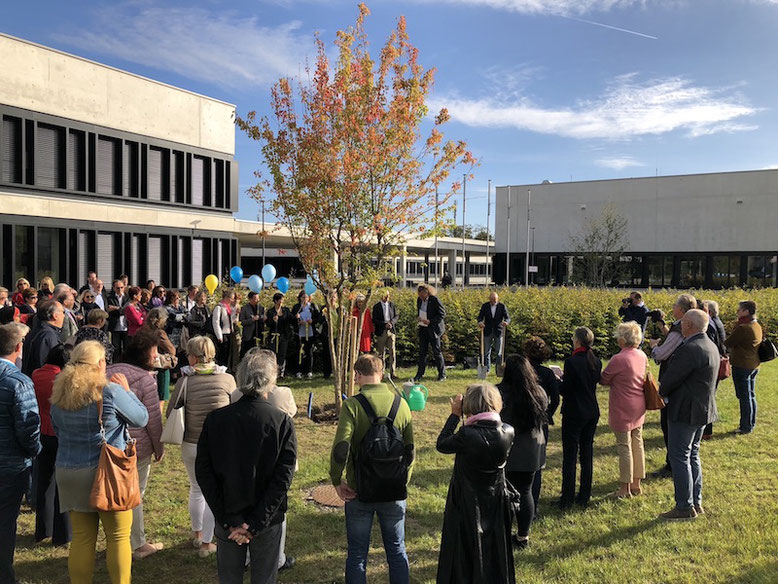Beyond the reach of teaching
Teaching and learning relate to each other like two sides of the same coin: they are not visible simultaneously. In order to assess the effectiveness of any practice in education, information about learning results is not enough. Being mindful of learning means breaking down the myth that that learning is the direct result of teaching. To do so, research must attend to what happens ‘lernseits’ of instruction, i.e. in the realm of learning beyond the view of but nonetheless inextricable from teaching. In the classroom, teachers need to find ways to discover and explore the essence of learning experiences that lie beyond the reach of their teaching – due to the personal nature of both teaching and learning. The inextricability of teaching and learning comes into view when they are seen as experience. The term ‘lernseits’ directs attention beyond teaching and indicates the otherworldliness of the learners’ experiences, calling for pedagogical stewardship of lived experiences. As pedagogical stewards, teachers must attend to the others and the otherworldliness of their experiences, consciously switching their attention to see what is occurring and sense what is emerging beyond the reach of teaching.
8 core concepts of sovereignty of learning
Meaning, mindest and attitude
Sovereignty of learning means being or becoming mindful and aware of what goes on beyond the reach of teaching. Mindful teachers engage students in transformative experiences through encounters of abstract academic knowledge with the life world. As pedagogical stewards, teachers must attend to the others and the otherworldliness of their experiences, consciously switching their attention to see what is occurring and sense what is emerging beyond the reach of teaching.
Professional ethics and awareness
Sovereignty of learning expects from teachers professional knowledge about their own limitations and possibilities. This knowledge originates in a conscious ethical approach which avoids stereotyping students and sustaining from ascribing students actions’ in light of assumptions. As pedagogical stewards, teachers must be sensitive towards the corporal articulations of students (e.g. movements of the body and facial reactions) in their learning journeys and endure irritations caused by counter-experiences.
Systemic knowledge and action
Sovereignty of learning means that teachers are aware of the greater whole when judging individual situations based on the life world experiences and life world realities of the students in a classroom. As pedagogical stewards, they see learning and schooling at large as a transmission phase between the past and the future and act constructively with the challenges caused by the antagonism in the field of tension between the respective demands and requirements.
Inviolability of human dignity
Sovereignty of learning asks teachers to find access to the perspectives of learners and takes the demands of world encounters seriously. As teachers cannot assume that what happens at school is by default a learning experience, they are in similar fragile situation as students and are also learners in the practice of teaching. As pedagogical stewards, teachers show respect for human dignity and aim at reciprocal recognition through a personalised approach.
Emphasising on competence
Sovereignty of learning asks for competences that help learners to engage in world encounters by gaining personal knowledge, which helps them leading worthwhile lives in an unknown future. Pedagogical stewardship supports learners in transforming knowledge beyond actual production, but enables them to persistently test the validity of their knowledge in varied fields of action.
As pedagogical stewards, they see learning and schooling at large as a transmission phase between the past and the future and act constructively with the challenges caused by the antagonism in the field of tension between the respective demands and requirements.
Finding access
Sovereignty of learning builds on the individual needs and expectations which have to be met in encountering the learners’ personal realities and life experiences in relation to a given subject matter. Pedagogical stewardship shows in understanding the individual learning biographies of their students and integrating their diverse life world theories into their teaching.
Culturing relationship
Sovereignty of learning is characterised by the interconnectedness both between teaching and learning, as well as between teacher and learner. As pedagogical stewards, teachers act in a respectful attitude and appreciation of the learning endeavour and of the personalities of their students. They are particularly sensitive towards the impact of experiences of shame and devaluation.
Emphasising resonance
Sovereignty of learning opens up space for mutual resonance. Pedagogical stewardship expects teachers to be responsive to what is emerging from experiencing reciprocity in the encounters with their students even if both do not have immediate answers in a particular situation.
translated from: E. Agostini, M. Schratz, E. Risse: (2018) Lernseits denken – erfolgreich unterrichten. Personalisiertes Lehren und Lernen in der Schule. AOL, p. 108.
Tree of Lernseitigkeit

In recognition of his scientific achievements and manifold engagements for the Austrian education system a „Tree of Lernseitigkeit“ was planted at the University College of Teacher Education of Lower Austria in Baden near Vienna.
